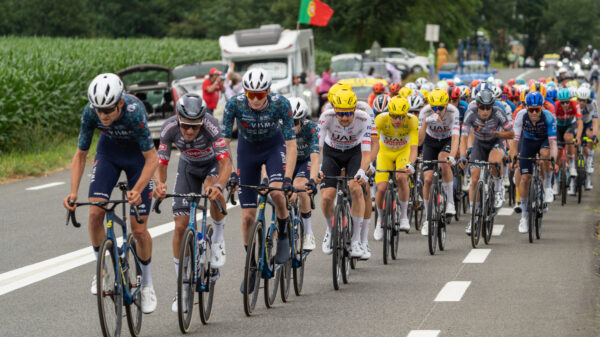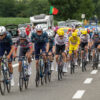Roar writer Justine Noble on the link between football and domestic violence that has had a new light shone on it during the Euros.
All over the UK, the UEFA Euro 2020 final was nerve-wracking, to say the least. After 55 years, England’s national team had made it into the final match of a major tournament. The pressure was on. Throughout the day on July 11, fans poured into London’s Wembley Stadium, Leicester Square, as well as anywhere else with great anticipation: was football really coming home? While for many, the answer to this question meant losing a bet, for others it was life and death.
According to a study conducted in 2014 by Lancaster University highlighted in The Economist which analyzed the number of reports of abuse to a police force in northwestern England over the course of three football World Cup tournaments, reports increase by around 26% when England wins or ties and 38% when they lose. The percentage of increase with a loss is estimated even higher by other studies.
But why is this the case? This is the question that a far more recent study, published on the 4th of July by Ria Ivandic, Tom Kirchmaier and Neus Torres-Blas of the Centre for Economic Performance (CEP) sought to answer. After examining 523,546 domestic abuse cases reported to the Greater Manchester Police together with in-depth information on 780 games played by Manchester City and Manchester United between 2012 and 2019, researchers reached a conclusion on why domestic violence increases in the aftermath of football games and created a timeline showing when it is most likely to occur.
Specifically, what they found was that the surge in abuse is exclusively propelled by alcohol consumption. Information on abusers’ game-time behaviour gathered by victims revealed that among viewers who had not been drinking throughout football matches, there was no statistically significant rise in domestic violence. Researchers also noticed that during the hour and a half long match, when offenders are focused on the players and drinking, there were fewer instances of violence. In the first four hours after the game ends, when the drinking stops, reports of abuse begin to come in again, peaking ten to twelve hours after the match starts.
So, what is there to be done? First and foremost, in light of the recent attention that has been given to the link between football and domestic violence as well as newly available research, local governmental authorities need to begin or improve efforts to put a stop to it. For instance, “Show Domestic Abuse The Red Card”, a promotional campaign spearheaded by local England councils during the Euros this year held that “hope, excitement, frustration and ultimately disappointment” of a football game can drive abusers to project their negative emotions on to their partners. However, according to the CEP study, this is inaccurate. Given what we know now, it would be more beneficial for councils to focus on the link between alcohol and domestic abuse in their campaigns. By educating the general public on the risks of excessive alcohol consumption and violence, councils could increase self-awareness in perpetrators as well as alert victims as to when they are most at risk.
The government must also do more to make help available to victims. While the numerous posts being shared on Instagram stories help to raise awareness of the coexistence of domestic violence and sport, chances are private accounts followed by people between the age of 18 to 25 are not enough. While an Instagram post containing helplines may have inspired me to write this article, a bus stop, radio, or TV ad is of far more use to a 35-year-old domestic abuse victim. Councils should additionally consider opening facilities on match days where women can go on game days to get support, simply stay out of the house, or connect with other victims.
The publishers of the CEP study additionally highlight how domestic violence could be curbed by holding football games on weekdays or later in the evening to stop fans from drinking all day long before and during matches as well as after. They also suggest limiting the sale of alcohol at sports venues. Arguably, doing the same at pubs would help.Â
While that would certainly cause a lot of pushback, what sports venues, pubs, schools, the government, and most importantly, football organizations themselves, can definitely do during football season is run campaigns to remind men that out-drinking your mates does not make you more of a man. Undoubtedly, to really bring instances of domestic violence down, the link between excessive alcohol consumption and toxic masculinity must also be addressed. Footballers themselves can also help. Since fans idolize and look up to their favourite player, each football player that boldly condemns domestic violence can make a positive change.
While we are privileged to live in a country in which women possess extensive freedom compared to many others in the world, we cannot forget the attitudes deeply ingrained in society that put women in danger behind closed doors. Following the explosion of racism after the Euros final on Sunday, footballers spoke out against racism. At the same time, parliament held a debate on racist attacks online. It’s time the same is done for women.


















